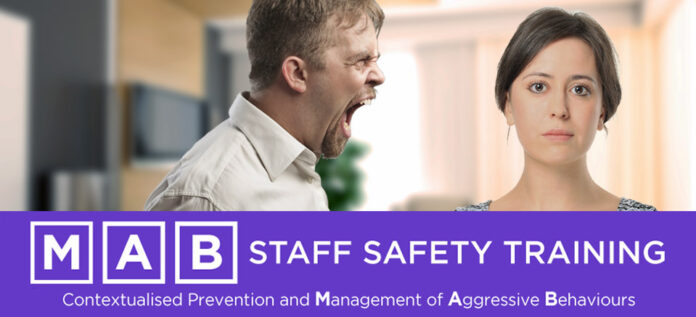Introduction
In an era where safety and crisis management are paramount, the role of a certified Crisis Prevention Intervention (CPI) instructor is more crucial than ever. The American Crisis Prevention & Management Association (ACPMA) offers a comprehensive CPI instructor training course designed to equip professionals with the skills and knowledge to effectively manage and de-escalate crisis situations. This article explores the benefits, structure, and significance of the CPI instructor training course, highlighting why it is a valuable investment for professionals across various fields.
Understanding CPI and Its Importance
Crisis Prevention Intervention (CPI) is a globally recognized training program that focuses on the safe management of disruptive and assaultive behavior. CPI techniques are widely used in healthcare, education, law enforcement, and social services to ensure the safety of both individuals and professionals. The CPI instructor training course is designed to prepare qualified professionals to teach these essential skills to others, thereby fostering safer environments in various settings.
The Role of a CPI Instructor
A CPI instructor plays a vital role in training individuals to handle crisis situations effectively. By becoming a certified CPI instructor, professionals can impart critical knowledge and techniques to their peers, enhancing the overall safety and well-being of their organizations. The role involves teaching core principles of adult learning, crisis intervention topics, and mandated subjects such as AB 508, ensuring that trainees are well-prepared to manage real-world scenarios.
Benefits of Certifying with ACPMA
- Expert-Led Training: The CPI instructor training course is conducted by experienced personnel who provide comprehensive training on crisis prevention and management. This ensures that instructors are well-versed in the latest techniques and best practices.
- Cost-Effective Training Solution: By certifying an instructor within your facility, organizations can save on the costs associated with training multiple employees. The “train the trainer” model is an efficient way to build internal capacity and ensure consistent training standards.
- Adult Learning Principles: The course covers the core principles of adult learning, enabling instructors to deliver effective and engaging training sessions. This includes understanding different learning styles, effective communication techniques, and strategies for maintaining learner engagement.
- Confidence and Competence: Instructors leave the training fully confident in their ability to teach mandated topics and crisis intervention techniques. This confidence is crucial for delivering high-quality training and ensuring that trainees are well-prepared to handle crisis situations.
- Comprehensive Training Materials: ACPMA provides all the necessary training materials, making it easier for instructors to conduct their sessions without additional preparation. This includes manuals, presentation slides, and other resources to support effective teaching.
- Reputation and Recognition: ACPMA is a household name in assaultive behavior management training. By certifying with ACPMA, instructors become part of a respected and recognized organization, enhancing their professional credentials and reputation.
- Flexibility and Convenience: The instructor course is available online, allowing professionals to study at their own pace and convenience. This flexibility is particularly beneficial for working professionals who need to balance their training with other commitments.
The Certification Process
The process of becoming a certified CPI instructor with ACPMA involves several steps:
- Eligibility: Applicants must meet certain eligibility criteria, which typically include relevant professional experience and a background in fields where crisis intervention skills are essential. This ensures that candidates have the necessary foundation to benefit from the training.
- Application: Interested candidates can apply for the instructor course through the ACPMA website. The application process may involve submitting professional credentials and relevant experience to demonstrate eligibility.
- Training: The instructor course covers a range of topics, including crisis intervention techniques, adult learning principles, and the core components of CPI training. The course is designed to be comprehensive and practical, providing candidates with the skills and knowledge needed to deliver effective training.
- Assessment: Candidates are assessed on their understanding of the material and their ability to deliver effective training. This may involve written exams, practical demonstrations, and teaching evaluations to ensure that candidates are fully prepared to teach CPI techniques.
- Certification: Upon successful completion of the course and assessment, candidates receive their CPI instructor certification. This certification is a testament to their expertise and commitment to crisis prevention and management.
The Impact of CPI Instructor Certification
The impact of CPI instructor certification extends beyond individual professional development. Certified instructors play a crucial role in enhancing the safety and well-being of individuals in various settings. By equipping professionals with the skills to manage crisis situations, CPI instructors contribute to reducing the incidence of violence and aggression.
In healthcare settings, for example, CPI training can help staff manage aggressive patients, ensuring the safety of both patients and healthcare providers. In educational settings, teachers and administrators can use CPI techniques to de-escalate conflicts and create a more conducive learning environment. In law enforcement, CPI training can enhance the ability of officers to handle volatile situations with minimal use of force.
Conclusion
Becoming a certified CPI instructor through the American Crisis Prevention & Management Association is a valuable investment in your professional development. The comprehensive training, cost-effective model, and flexibility of the course make it an attractive option for professionals seeking to enhance their skills in crisis prevention and intervention.
By certifying with ACPMA, you not only gain the expertise to teach essential crisis management techniques but also become part of a respected organization dedicated to promoting safety and well-being. Whether you are a healthcare professional, educator, law enforcement officer, or social worker, CPI instructor certification can open new doors and enhance your ability to make a positive impact in your field.
For more information on becoming a certified CPI instructor, visit the ACPMA website at https://www.crisispreventionmanagement.com/become-an-instructor and take the first step towards a rewarding and impactful career in crisis prevention and management.


